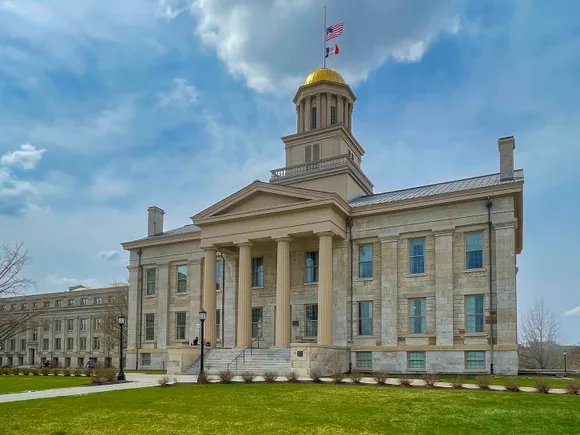Listen to the article
Dive Brief:
Only four-year institutions would be subject to significantly stepped-up reporting requirements for admissions data disaggregated by race and sex, under a notice issued by the Trump administration on Wednesday.
The plan, first introduced in August, would require affected colleges to submit six years worth of application and admissions data — disaggregated by student race and sex — as part of the next reporting cycle.
The updated terms would exempt two-year colleges and open-enrollment institutions that only award aid based on financial need from having to report this data to the National Center for Education Statistics, which oversees the Integrated Postsecondary Education Data System.
Dive Insight:
The U.S. Department of Education currently only requires institutions to submit data disaggregated by race for enrolled students.
But under the Trump administration’s proposal, colleges would have to disaggregate data for applicants, those admitted and enrolled students by race and sex. They would also have to cross-reference the data with each individual’s admissions test scores, GPA, family income, Pell Grant eligibility and parents’ educational level.
Colleges would be required to submit this information for every academic year dating back to 2020-21 for the first IPEDS reporting cycle of the new plan, currently proposed as 2025-26.
The administration intends to use the data points to “indicate whether institutions of higher education are using race-based preferencing in their admissions processes,” according to the Federal Register notice filed by Ross Santy, data officer at the agency’s Office of Planning, Evaluation and Policy Development. The U.S. Supreme Court struck down the use of race-conscious admissions practices in 2023.
The plan would also mandate that colleges submit their graduation rates from 2019-20 to 2024-25.
In its August notice, the Education Department said it expected to focus these additional reporting requirements on four-year institutions with selective admissions processes. It said these colleges “have an elevated risk of noncompliance with the civil rights laws,” both in admissions and scholarships, while it considered community colleges and trade schools at low risk for civil rights noncompliance in admissions since they admit all or virtually all of their applicants.
The department at the time sought public comment on which institutional types should be subject to the new reporting proposal. This week, it made revisions based on that input, according to Santy.
Since the Trump administration first announced the proposal, higher ed groups and colleges have raised concerns about the administrative burden it would put on institutions and the rapid turnaround time necessitated by a 2025-26 start date.
Wednesday’s update would bring relief for two-year institutions and many of those with open enrollment policies. But many of the sector’s concerns went unaddressed, including comments about unclear language in the proposal, issues around student privacy and unease that the Trump administration would construe the data with the intent of attacking colleges further.
Since President Donald Trump began his second term in January, the federal government has alleged that colleges supporting diversity efforts or permitting student protests are in violation of civil rights law and has opened numerous investigations on these grounds.


























